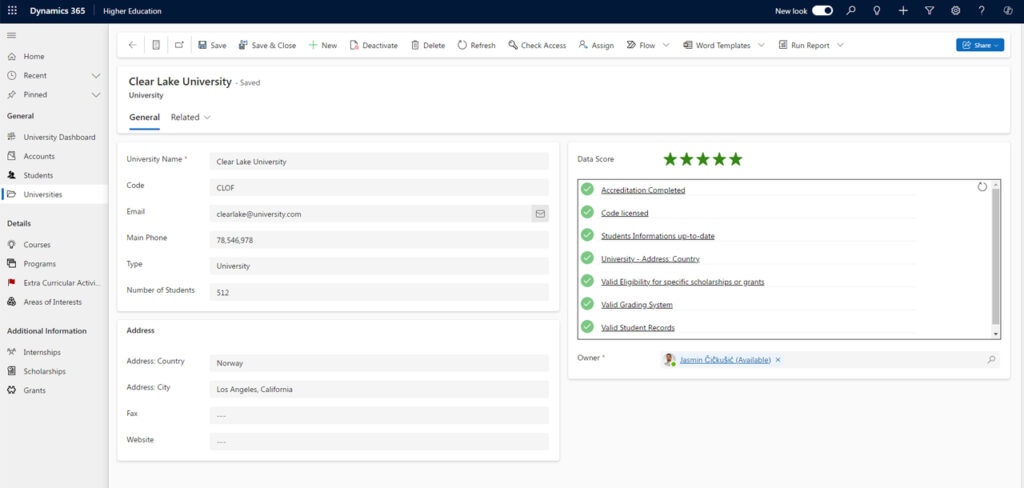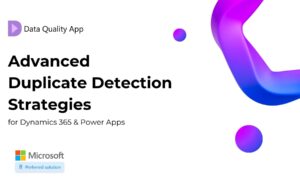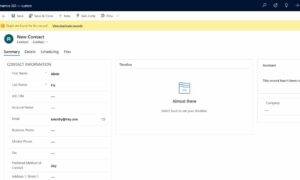
Data Quality for Higher Education: Challenges and Solutions
Data quality issues like inconsistency, inaccuracy, or outdated information can hinder effective resource allocation, program development, and student success!
Why is Data Quality Important for Higher Education?
Data Quality is super important in Universities.
It helps them make good decisions, like how many students to accept or which programs to offer. It also keeps them in line with rules and reporting standards. Plus, it’s key for helping students succeed by tracking their progress and giving them the support they need.
Good data means resources like money and staff are used wisely, and it helps universities figure out what’s working and what needs improvement. And, of course, having reliable data makes universities look good to everyone, from students to funding agencies. So basically, it’s a big deal for keeping everything running smoothly and making sure everyone’s happy.
Who ultimately ensures Data Accuracy and Reliability?
While data creators ensure initial accuracy, maintaining reliability requires a shared journey. Everyone, from data stewards and users to IT, plays a crucial role in keeping information trustworthy throughout its lifecycle.
Common Data Quality Challenges in Higher Education
Universities are swimming in data, but is it reliable enough to make informed decisions?
Data quality – how accurate, complete, and consistent your information is – directly impacts everything from student success to resource allocation.
Common challenges:
· Data Inconsistency: Different departments might define the same data point differently, making analysis a mess.
· Data Inaccuracy: Typos and incomplete entries can plague student records, finances, and faculty info.
· Outdated Data: Outdated information becomes useless for current decision-making.
· Data Integration Issues: Combining data from various sources can be a nightmare due to incompatible formats and manual processes.
· Limited Resources: Lack of budget, staff, and proper tools hinders data quality efforts.
· Lack of Awareness: Without understanding the importance of data quality at all levels, issues fester.
These challenges cost time and money. The good news? They’re fixable!
How poor Data Quality impacts Universities?
In universities, poor data quality creates a domino effect of problems.
Inaccurate or incomplete data can lead to misguided decisions on resource allocation and program development.
Operational inefficiencies arise due to inconsistent data across systems, causing delays and errors in admissions, financial aid, and registrations. Frustrated students and staff burnout can follow from these issues.
Risk management suffers as inaccurate data weakens financial reporting, compliance, and accreditation efforts.
Student success is hindered by inaccurate records impacting scholarships and academic support services.
Benchmarking performance against other institutions becomes difficult with inconsistent data.
Marketing and recruitment efforts are weakened by relying on incomplete or outdated student information.
Strained alumni relations and fundraising result from incorrect alumni contact details. Ultimately, reduced trust and transparency erode relationships with students, faculty, staff, and external stakeholders.
Prioritizing data quality is crucial for universities to avoid these pitfalls and make informed decisions that benefit everyone.

Strategies for improving Data Quality in Higher Education institutions
Higher education institutions can significantly improve data quality through several key strategies.
First, data profiling and standardization establish clear rules for how data fields should be populated, ensuring consistency across the system.
Automated duplicate detection helps identify and eliminate redundant entries, while real-time data validation prevents errors during input. Streamlining data integration allows institutions to gather information from various systems onto a central dashboard governed by data quality rules. Additionally, fostering collaboration empowers administrators to track progress towards data quality goals with the help of insightful reports.
Furthermore, promoting data quality awareness through training sessions cultivates a culture of data responsibility among faculty, staff, and students. Finally, continuous improvement through regular monitoring ensures the ongoing effectiveness of data quality initiatives.
By implementing these strategies, higher education institutions can build a strong foundation for informed decision-making based on reliable and trustworthy information.
Benefits of the Data Quality App
It is common for universities to have a large amount of valuable data but struggle to harness its potential. Inconsistent, inaccurate, or outdated information can cripple decision-making, resource allocation, and student success. A data quality app emerges as a powerful solution, unlocking a treasure chest of benefits:
· Sharper Decisions: Reliable data fuels informed choices on everything from program development to resource allocation. No more guesswork – data quality apps empower universities to make strategic decisions backed by solid evidence.
· Smoother Operations: Clean data streamlines processes across departments. Admissions, financial aid, and registration become faster and more accurate, reducing frustration for staff and students alike.
· Student Success Soars: Accurate student records ensure timely access to scholarships, financial aid, and academic support services. Data quality apps empower institutions to proactively address students needs and cultivate a more supportive learning environment.
· Risk Management Reinforced: Inaccurate data can lead to financial reporting errors and compliance issues. Data quality apps mitigate these risks by ensuring the accuracy and integrity of financial data.
· Data-Driven Marketing & Recruitment: Targeted marketing campaigns rely on accurate student information. Data quality apps help institutions reach the right audience with the right programs, leading to better recruitment outcomes.
· Stronger Alumni Relations: Accurate contact information is crucial for maintaining strong alumni relationships. Data quality apps help institutions connect with alumni effectively, fostering engagement and fostering fundraising opportunities.
· Trust and Transparency Flourish: Reliable data fosters trust with students, faculty, staff, and external stakeholders. Data quality apps ensure everyone has access to accurate information, strengthening relationships and promoting collaboration.
By investing in a data quality app, universities can unlock the true power of their data, optimize operations, and create a data-driven foundation for success.
If you’re intrigued by what you’ve seen in this blog and are facing challenges with Data Quality in your organization, don’t hesitate to reach out. You can download our Data Quality App from www.dataqualityapp.com, Microsoft AppSource, or Azure Marketplace.
For personalized assistance, contact our support team at support@techdio.dk.
You can read more blogs about Data Quality App here.



